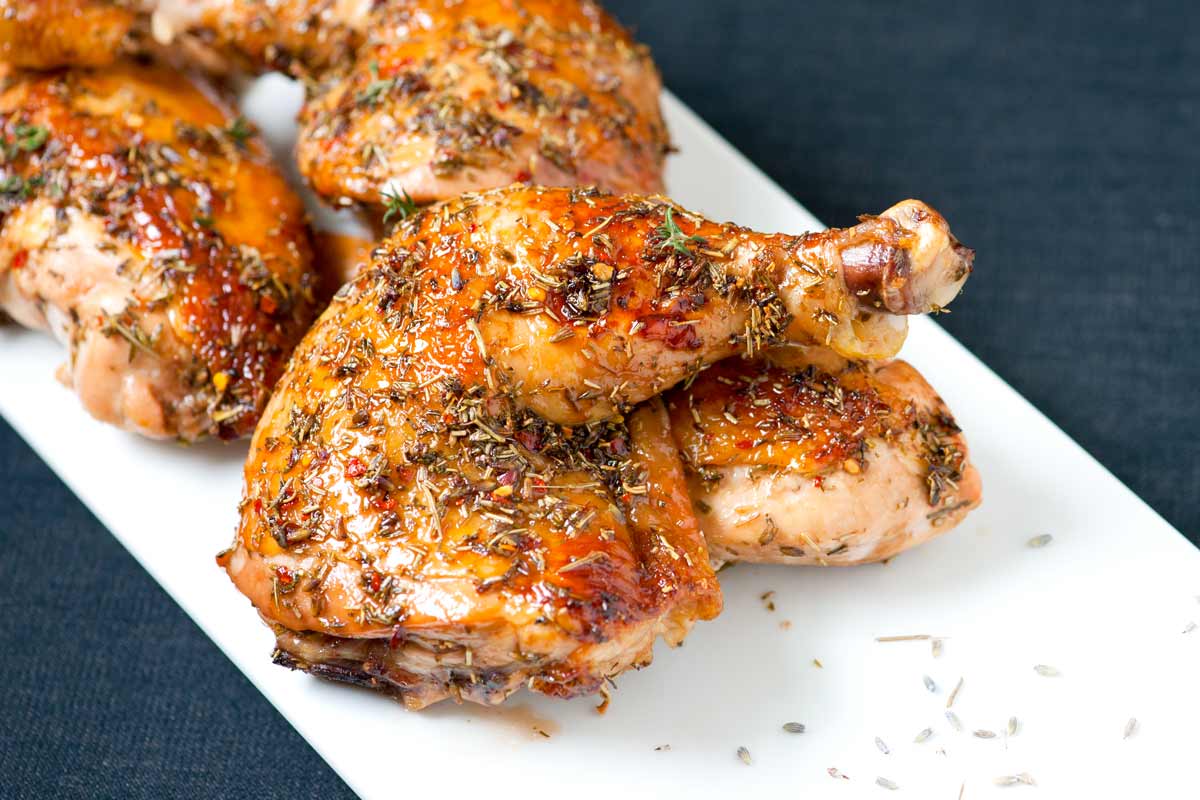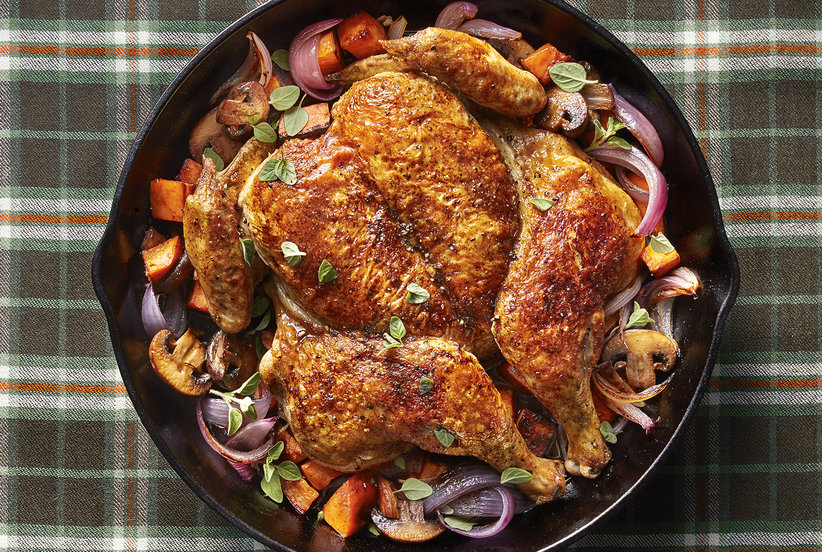
Thanks for joining us today. We’re talking with Henrietta, a non-GMO pastured chicken, who is running for Pasture Mayor and passionate about being the main course for your dinner.
Interviewer: Thanks for taking a moment to invite me into your coop to talk about why everyday Americans should choose chicken for dinner. You are a passionate advocate for chickens everywhere as the go-to choice for any dinner, whether it’s a quick weeknight meal or a special occasion. Can you tell us why you feel so passionately about this?
Henrietta: Absolutely! Let’s start with the basics: Chicken is good for you. It’s a lean meat, which means it’s low in fat, and it’s a great source of protein. Including lean protein in your meals is one the best ways to feel satiated, keeping your energy up and your hunger pangs down. Chicken is also a great source of amino acids, which are the building blocks of human bodies. And lucky for you, we’ve got a wide selection of chicken available for you to take home and enjoy!
Interviewer: I can get chicken pretty much anywhere, though. Why should I buy chickens like you that were raised in this pasture rather than whatever I can get at a big-chain grocery store?
Henrietta: First, we are non-GMO pastured hens. That means we were raised outdoors, free to roam around to our heart’s content, and never given any antibiotics, hormones, or feed made from genetically modified organisms. We’re all natural. Buying us means you will be getting chicken and nothing BUT chicken—before being sold, we’re not pumped full of salinated water, either.
 We’ve been ethically raised and that really comes out in our flavor. We are chicken at its purest. And chicken, as we know, is a quick and easy option for any meal. Great tasting, ethically raised, quick to prepare on a weeknight, and there are tons of different cuts available—you should be eating us every day!
We’ve been ethically raised and that really comes out in our flavor. We are chicken at its purest. And chicken, as we know, is a quick and easy option for any meal. Great tasting, ethically raised, quick to prepare on a weeknight, and there are tons of different cuts available—you should be eating us every day!
Interviewer: Okay, that’s all amazing info, but why should I choose chicken for a special occasion when you just made the case that it’s such a great everyday food?
Henrietta: Everyone loves chicken—that’s why people eat it so often! But, in addition to chicken being a crowd pleasing menu choice, chicken is incredibly versatile. There are so many different ways to prepare it that you can get as fancy and complicated (chicken roulade, anyone?) or as minimalist as you want. And, if you’re cooking for a crowd, it’s the easiest thing in the world to simply roast two chickens instead of just one.
Interviewer: Roast chicken is pretty delicious. I’ve always loved stuffing mine with garlic, onions, and lemon, sprinkling some salt and pepper on the outside, and then cooking it slowly. It’s so moist and tender!
Henrietta: A classic method of preparation, my friend, and an excellent choice. If you want to experiment, though, in addition to stuffing some onions and lemon inside the bird, you could also try creating a paste of olive oil and generous amounts of spices (any ones you want! Get creative!) and then rubbing that into and underneath the skin.
Roast it until it’s nearly done and then blast it with heat for the last 20 minutes to really crisp up the skin. You’ll love it!
Interviewer: Mmm, that does sound good. Can I ask you a personal question? I see it in recipes all the time, but I don’t understand the point—why do recipes tell me to pat the chicken dry

with paper towels? I mean, it’s kind of awkward, gently (they always specify gently!) patting a raw, naked bird inside and out. I usually just skip that step.
Henrietta [shocked]: What?! You skip that step?! No, no, my friend. Don’t feel weird about this. Pat that chicken until it’s as dry as you can get it. Removing excess moisture will help the skin crisp up into a delicious snack. If you’re skipping the patting step, I strongly suspect you may also be skipping the salting step. Is that true?
Interviewer: Um…the salting step? No, no, I don’t skip that, I mean, I always use salt…
Henrietta [sternly]: Yes, but are you salting the chicken ahead of time? I don’t just mean using salt as a seasoning before you put it in the oven.
Interviewer: Oh. Then, no. I guess I’m not salting. What do you mean?
Henrietta: Salting the chicken with kosher salt, both inside and out, allows the seasoning to really penetrate the meat. You should let the salted bird sit for at least an hour, but if you can salt it in advance and leave it in the fridge, uncovered, for up to a day, that’s even better.
Interviewer: You know, sometimes I hear on the news that salt is bad. Should I really be adding salt to my chicken? Does it make my
chicken a less healthy choice if I’m adding salt to it?

Henrietta: Not at all! Salt is an important part of our diet. Well, your diet, really. Human bodies use sodium to maintain fluid levels, transmit nerve impulses, and contract and relax muscle fibers, including the ones in your heart. If you want to give yourself an extra boost, consider using a natural, unrefined salt, such as one that is gray or pink, which contains all of its trace minerals. Unrefined salt is a whole food product and provides minerals we—well, you—need for proper cellular function.
Interviewer: Henrietta, thanks for talking with us today. I feel like we barely scratched the surface with your bony, little chicken foot of all the advantages there are to making ethically raised, non-GMO chicken a centerpiece of our diets. Let’s talk again soon!







